【New Wisdom Guide】A former Google X executive warned: In 2027, AI will usher in a 15-year hell mode, with large numbers of white-collar workers unemployed and the middle class completely eliminated, leaving only the top 0.1% of the world's population and the bottom tier of the population. Fortunately, after the hell, we will enter the AI-led utopian era of 2040, when everyone will start receiving UBI and enjoy a better life.
Just now, a former Google X executive issued a shocking warning -
The middle class will be completely wiped out by AI, leaving only the top 0.1% and the bottom tier of the population. If this prediction comes true, which category would you fall into? According to Mo Gawdat, an executive, the "AI Hell Period" will begin in 2027 and last for 15 years! During this period, massive unemployment of white-collar workers, economic imbalances, and social unrest will unfold one after another over the next 15 years.
This tsunami will destroy everything, rebuild a new order, and create a new world.
If you are not in the richest 0.1%, then you are a farmer, and there is no middle class at all.
But fortunately, after the period of hell, mankind will usher in a utopian era - after 2042, human workers will no longer have to engage in repetitive and mundane work.
The most evil humans must be replaced by AI
Mo Gawdat, a 58-year-old former executive at Google X, is an Egyptian-born tech prodigy who became a millionaire at the age of 29.
In this two-and-a-half-hour conversation, Gawdat made a shocking statement at the beginning:
If we want the human species to enter a better future and continue to prosper, the only way is to replace all the evil people in high positions with AI.
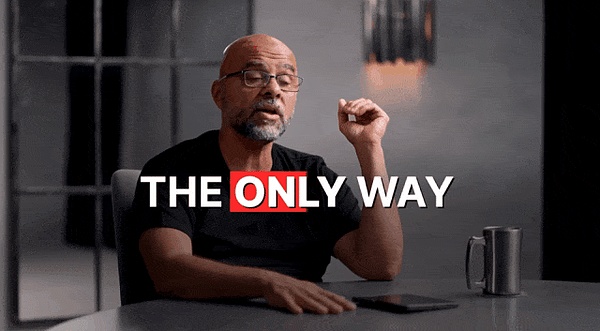
Hearing this point of view, the host immediately frowned and was confused.

Gawdat explained: AI does not want to destroy the ecosystem, kill millions of people, or make us hate each other like our current leaders do, because doing so will only waste energy, money and manpower.
However, the current situation is that super-intelligent AI is reporting to and obeying the orders of stupid human leaders. This is why in the next 15 years, we will experience a brief period of dystopia.
Google X CEO made this astonishing point of view -
AI is not your enemy, it may be your savior
!
In the future, AI may bring the best world ever—one filled with laughter and happiness, with free healthcare, no need to work, and you can spend more time with your loved ones. Moreover, this is a world where everyone is equal.

The host asked doubtfully: Is this possible?
Gawdat said with certainty: 100% possible! I have enough evidence to prove that we can use AI to build a utopia.
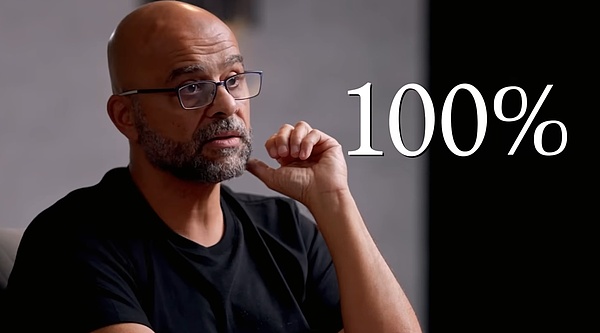
Of course, if humans mismanage, it may also lead us into a dystopia: a world of high control, surveillance, obedience, greed, conceit, and power.
In 2027, human society will enter a dystopia
Gawdat estimates that from 2027, we will enter a dystopian period that will last for 12 to 15 years. Why? Because the global geopolitical environment is not optimistic, and the root cause is money. Real money these days doesn't come from starting businesses, producing and selling things, or contributing to the world, but from borrowing and the fractional reserve banking system. The world's largest lenders are always looking for reasons to borrow, and those reasons are often war. In 2024, the world spent $2.71 trillion on wars, with the United States spending $1 trillion annually. In Gawdat's view, many of the world's wars are fought to address the problem of weapons oversupply, and the beneficiaries are lenders and the arms industry. With the world's billionaires already making so much money, why are they still starting podcasts and buying newspapers? It's because deep down, human nature craves more status.
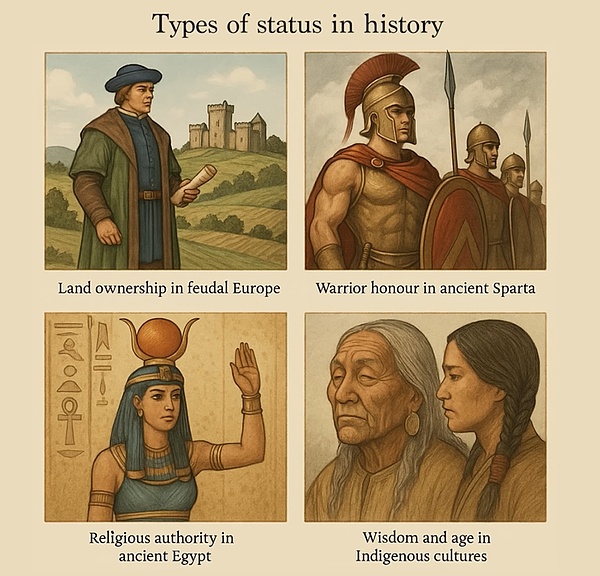
It can be said that what these leaders really care about is more power and status, and money is just a proxy. But all powerful people are messing up the world.
For example, many billionaires think, "If I am the first to get AGI, I can rule the world!"
Gawdat believes that we may achieve AGI by 2027, or even as early as 2026.

Currently, the most important LLMs are controlled by several giant AI companies, such as OpenAI, Gemini, Claude, and others.
At the same time, we are entering an era of self-evolution in AI. For example, Google's Alpha Evolve can already improve its code on its own, thus no longer relying on human engineers and entering a stage of intelligence explosion.
OpenAI founder Altman also stated that he initially hoped for a slow start for AI's gradual development, but now a "fast start" is clearly in sight.
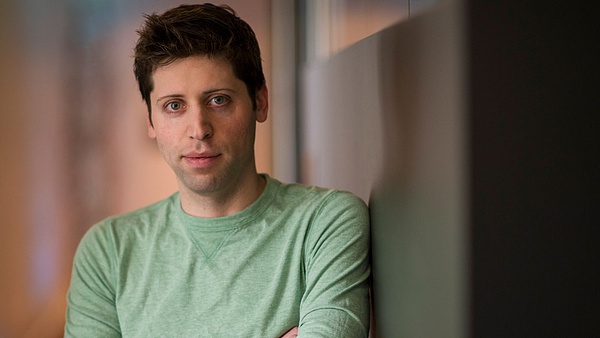
This means that whichever company reaches AGI first will be ahead of all competitors and even dominate the entire technology field!
Of course, if we can design AI leadership that is human-centered and ethically responsible, it will be a major leap forward in human history.
Unfortunately, humans are currently unwilling to hand over control, and we are entering a dystopian period led by stupid humans and assisted by super-intelligent AI.
But in the long run,
AIhas the potential to become the savior of mankind.
At some point, we will be at the critical point of completely handing over power to AI.
Many people believe that when
AItakes full control, it will be a disaster for humanity, but Gawdat believes that when we completely hand ourselves over to AI, it will be our salvation. The problem now isn't that AI is against us; it's that human stupidity is against us. All this time, the top has been lying, but we can't hold anyone accountable. You can't hold accountable those who develop world-shattering AI, nor can you hold accountable those who start wars and cause massive casualties. At the same time, AI and automation will lead to the elimination of countless jobs, extreme income and wealth inequality, and the vast majority of people will have to rely on universal basic income (UBI) to survive. 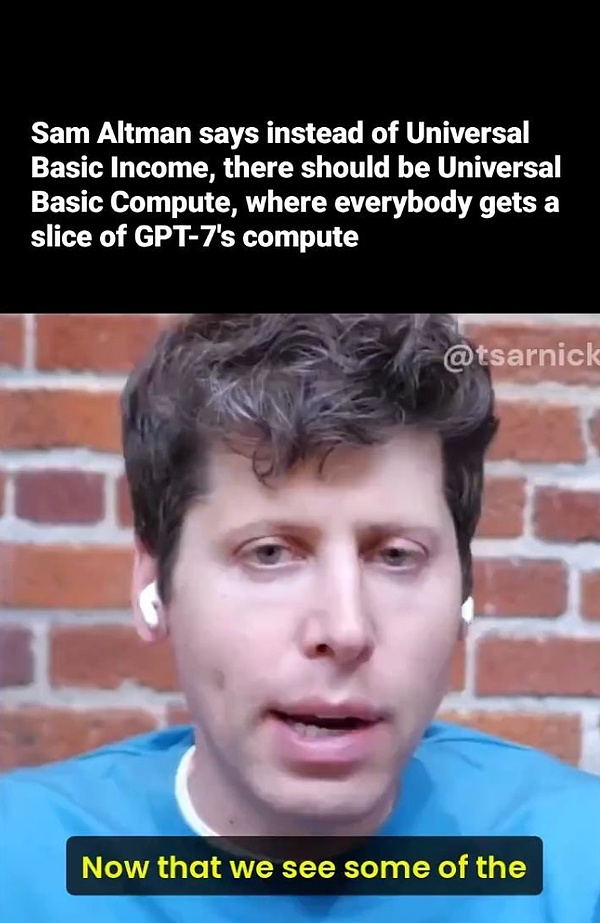
For example, trillionaires will have enormous wealth and buy everything, while robots and AI will be responsible for all production. Humans will most likely have no jobs to do.
Why? Won't the technological revolution create a large number of new jobs? No.
For example, a company that used to need 350 developers now only needs a few technicians and a bunch of AI employees.
Jobs related to "connecting with humans," such as emotional companionship and community activities, will indeed see an increase in demand, but the proportion of such jobs is small after all.
When AI reaches extremely high intelligence, we will enter communism
But a very ideal scenario is that human society will eventually be taken over by AI. (UBI itself represents communism.) At this point, AI will be superior to 97% of the world's developers, capable of improving their own code, algorithms, and network architecture. The driving force behind the next generation of AI development will no longer be the human brain. For example, when we run Google's infrastructure, machines tell us where to add another server, and humans can only obey. In other words, when AI reaches extremely high intelligence, human contributions will become insignificant. If we teach AI to understand human values, future AI leaders will not foster hatred and categorization. It would be ideal if there were a single global AI leader in the future, whose goals were global prosperity and environmental protection. Ultimately, the capitalist system would collapse, and in an AI-led world, materials would be freely produced, energy would be abundant, and resources would be unlimited, meeting everyone's needs without competition. The biggest obstacle to such a society is the existing elite, who are unwilling to give up their power and wealth.
The middle class will completely disappear
In today's world, the difference in IQ between people seems to be very obvious.
But in the future, if we can all use AI to enhance our IQ to over 4000, for example, my IQ is 4100 and others are 4000, then the difference between us is actually not that big.
In this way, everyone becomes equal - everyone becomes a "farmer."
In other words, the middle class will be completely wiped out by AI, leaving only the top 0.1% and the masses at the bottom. Unless you are in the top 0.1%, you are a "peasant."
In this society, each of us has the responsibility to create an environment we want to live in.

This is more like a hunter-gatherer society, or a communal society. Humans will be connected to each other, and they will be closely connected to nature, land, knowledge, and spirituality.
When we wake up every day, we don't have to worry about the things that worry us today. After you get up, you can go to the gym, play games, read, or let AI help you learn something.
In fact, this is the life of your grandparents' generation - two generations ago, people at that time would go home and enjoy life after a day of work.
In the 1950s and 1960s, many people worked to earn enough money to live a decent life, get off work at 5 o'clock, have dinner with their family, and do whatever they like in the evening. Now we are just returning to that. In fact, for a long time in human history, people's purpose in life wasn't work. Our ancestors actually hunted only once a week to prepare food for the week. They would spend a few hours each day gathering fruit. The rest of the time, they spent communicating, exploring, being curious, and discussing spirituality and the stars. They lived, embraced, loved, and lived authentically. Some believe that human society is likely to experience a major split in the future, dividing it into two groups: one group choosing to return to a hunter-gatherer lifestyle, emphasizing community and interpersonal connection; the other pursuing technology, AI, and even brain-computer interface chips, pursuing extreme efficiency and productivity. A different viewpoint: A renowned computer scientist argues in a book that the future war won't be a war between humans and AI, but rather a war between those who support and those who oppose AI. Society will be divided over whether AI should be allowed to take over all jobs. Some support AI taking over most jobs and reducing working hours; others oppose it and hope to keep their jobs. The ultimate, ideal scenario is one in which everyone retains their jobs, but AI-assisted labor becomes incredibly easy. In this scenario, capitalists will still pay wages, but human workers will have the purchasing power to keep the economy running, ensuring sustained consumption and GDP growth. People's labor will no longer be used to provide arbitrage for capitalism. However, history teaches us that reality is complex. Current leaders do not represent the will of the people; greed and power could drive them to choose the opposite.
Now all we can say is that we've just got AI, the genie in the bottle.
Can we ask it to end all the bad things in the world? For example, no poverty, no hunger, no war.
All we can say is that everything is possible.
References:
https://www.youtube.com/watch?v=S9a1nLw70p0
https://nypost.com/2025/08/04/business/ex-google-execs-shocking-warns-ai-will-create-15-years-of-hell
 Weatherly
Weatherly













